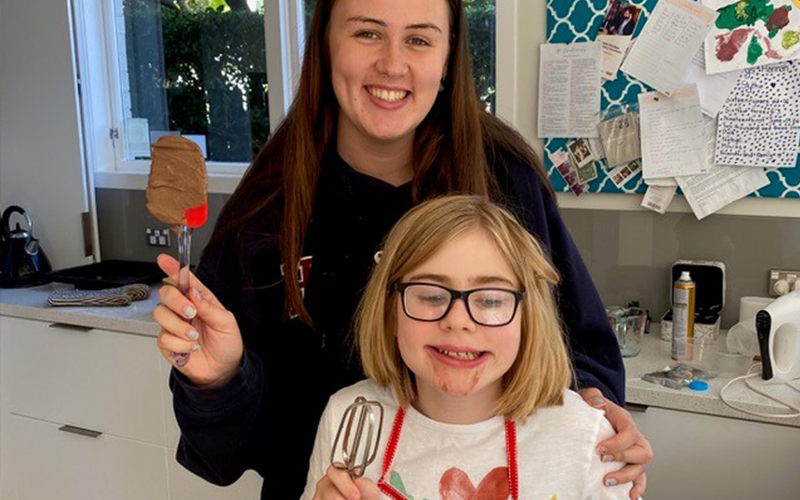Our daughter Isla has autism. Although she loves structure and routine I struggle sticking with the simplest of schedules. Here are some ideas that have helped us plan our days and hopefully may help others.
Give yourself a break
The best thing we can do to support our children emotionally is by keeping calm and having some sort of structure. That doesn’t mean we need to place more stress on ourselves trying to do that. Every hour doesn’t need to be accounted and it’s okay to have some down time.
Schedule your day
Not just for them but also for you. Start by adding what you want to achieve in your day to your schedule. Use those times as device/screen/TV time. Then schedule in activities around that. Use a visual schedule and use a timer for each activity that counts down, so your child knows how long they have got left.
Activities
This is the perfect time to focus on life skills rather than academics. Choose one life skill you are trying to get them to master and work on that for a week until they have mastered it. Try not to bring in too many at one time as repetition is needed to cement that skill.
For learning opportunities pick a topic of interest to your child and base any work around that. For example, our daughter with autism enjoys nature and birds in our garden. We are identifying the birds and finding out what they eat. We have created a project in the literacy programme Clicker. We made a bird feeder and are hoping to attract some birds so we can take some photos.
Create a visual choice board of available free time activities. This will give them options to choose from. Help your child get out all that is required for the task and help them get started. Praise them for staying on task and be prepared to keep it short if necessary.
Include Sensory Play. Although sometimes messy will help regulate your child.
Bribery & Rewards
Plan your schedule so rewards follow tasks your child may find more challenging. Or create a sticker/star chart where a chosen reward is given for good behaviour and sticking to the routine. If your child doesn’t respond to reward charts have instant rewards during the activity to reaffirm the desired behaviour. If you are choosing device/screen time as your reward, be prepared for having to withhold those if you do not get the desired behaviour. As this is sometimes the only option to allow you to get things done you may have to choose a different reward!
Makes Some Rules
Just like school write up the rules for the household.
Self-care
Don’t forget to take some time for YOU during this time. Schedule in some exercise and get outside as much as you can even if it’s in your own garden.
Movement
Exercise isn’t important just for us but also for our children. Find whatever motivates them and get them moving. Isla enjoys her bike, so we go out for a ride each day. We are able to do this at the moment here in New Zealand, but it could be an obstacle course or dancing for example.
Connect with others
Zoom or Facetime calling gives them an opportunity to connect with their friends and extended family. We have a call each day with a couple of Isla’s friends and all work on an activity together. This is highly motivating for Isla.
At the end of the day we are all trying to do the best we can and remember you cannot pour from an empty vessel.
